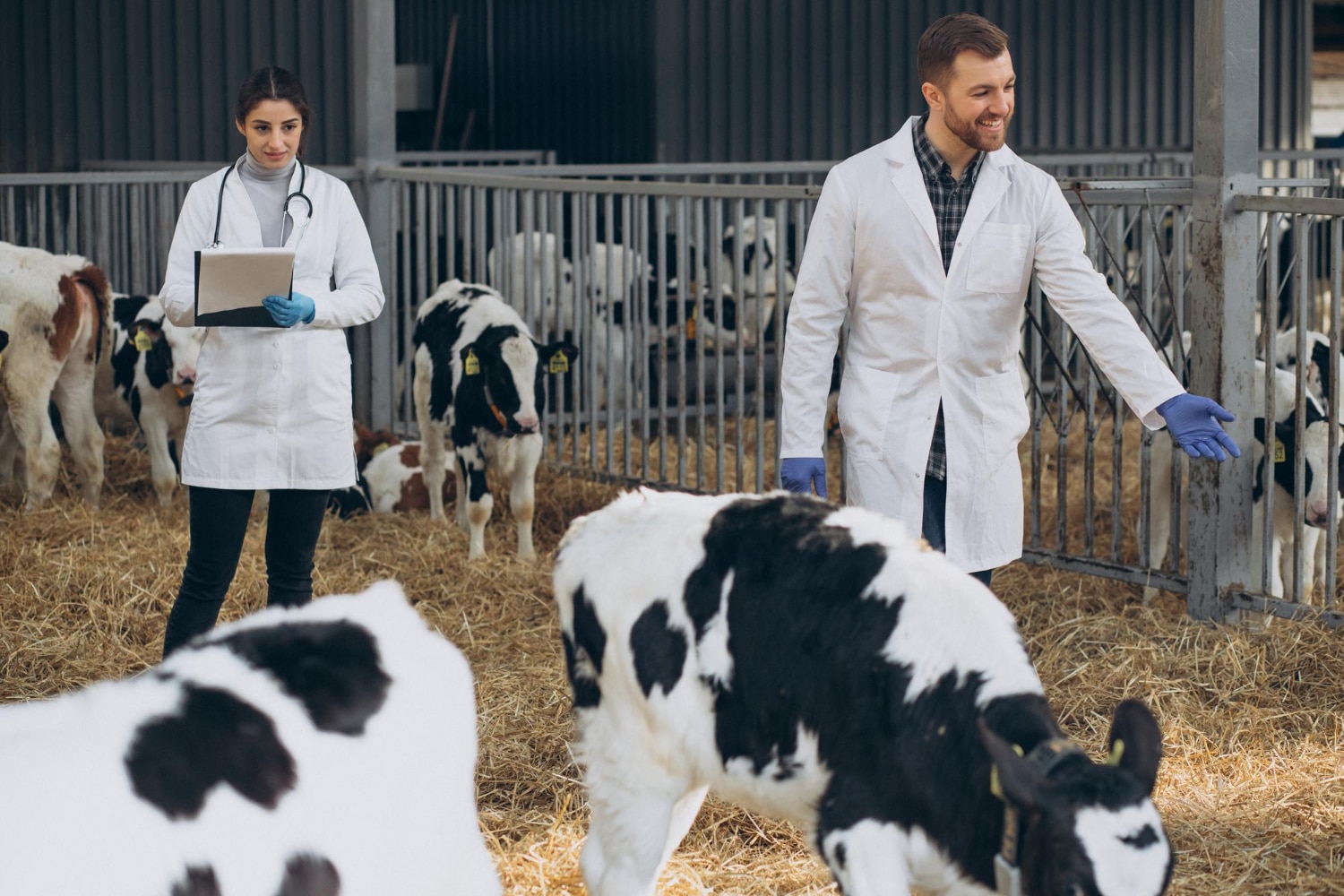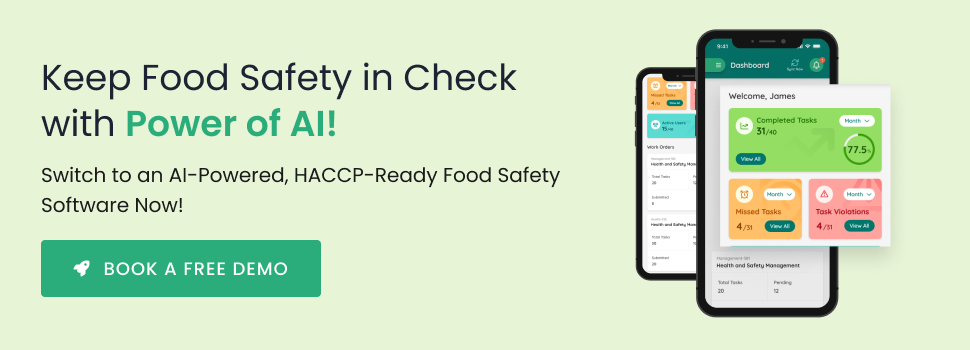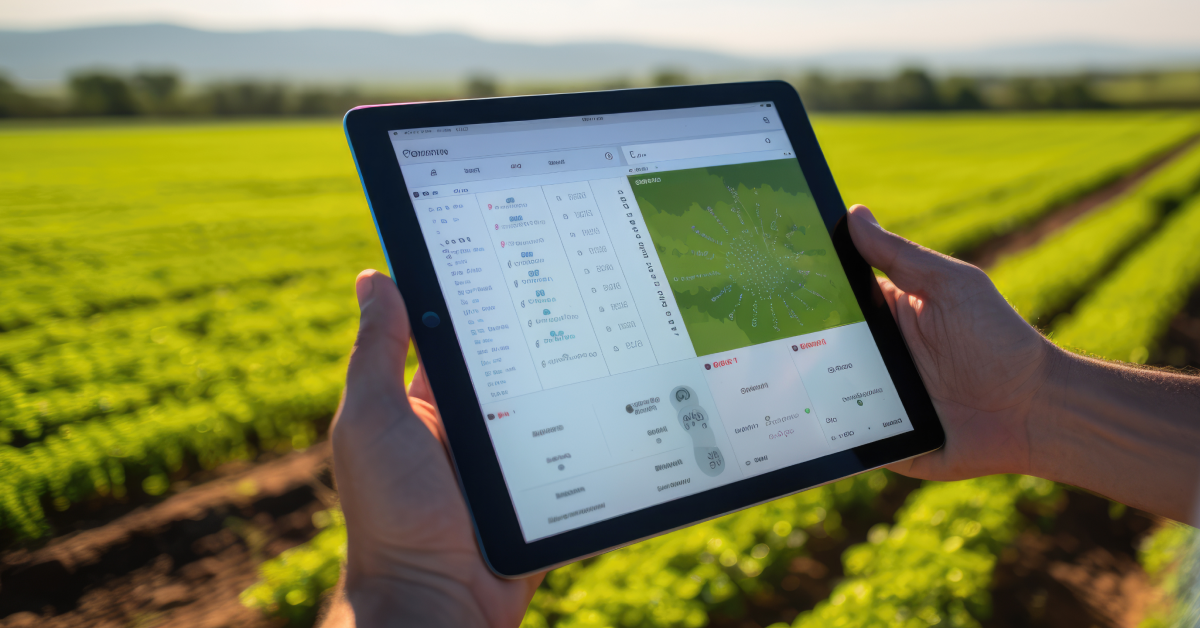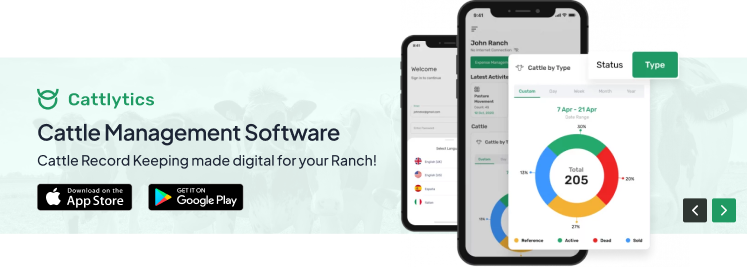Introduction:
Implementing strong biosecurity measures in livestock farms protects against potential animal agriculture disasters. The importance of preventive measures to stop disease epidemics cannot be stressed enough.
Biosecurity measures cover many procedures, from strict cleanliness guidelines to thorough compliance management. These precautions protect animals’ health and well-being and lessen the financial effects of disease outbreaks.
Livestock farmers may defend their operations from diseases using a proactive disease control strategy. Controlled access, regular monitoring, and timely immunization are essential to biosecurity management.
Livestock farms strengthen their foundation by putting illness prevention before reaction, ensuring the welfare of their animals and the health of the entire sector.
Understanding Biosecurity Measures in Livestock Farming:
What are Biosecurity Measures, and Why Are They Vital for Livestock Farms?
Various procedures are included in biosecurity measures, which attempt to stop the introduction and spread of illnesses on livestock farms. These precautions include stringent cleanliness rules, restricted access, and proactive disease prevention techniques.
Their importance is sustaining economic stability, safeguarding cattle health, and preventing disease outbreaks.
Biosecurity protects animal welfare and the viability of livestock farming by reducing the danger of infections through efficient waste disposal, quarantine processes, and constrained visitor movement.
Biosecurity measures in livestock farms ensure the robustness and longevity of the entire livestock business, which serves as an essential defense mechanism.
The Impact of Disease Outbreaks: The Need for a Proactive Approach
Disease outbreaks can unleash devastating consequences on livestock farms, triggering economic losses, animal suffering, and supply chain disruptions. A proactive approach to prevention becomes paramount to mitigate these impacts.
Swift action through biosecurity measures, vaccination, and careful monitoring can halt the rapid spread of diseases, preserving livestock health protection and farm productivity.
By prioritizing prevention over reaction, farms avert losses and ensure sustainable operations, safeguarding their financial stability and the welfare of the animals they nurture.
Essential Biosecurity Practices for Livestock Farms
-
Facility Access Control: Limiting Entry to Prevent Disease Spread
The most important aspect of biosecurity in livestock production is facility access control. Farms can minimize the unintentional introduction of diseases by limiting access and following strict visitation regulations.
Controlling entry reduces the risk of viruses being brought in by people, vehicles, or equipment. Visitors are required to follow designated entry routes, wear protective clothing, and follow prescribed disinfection protocols.
By lowering the risk of disease transmission, these methods safeguard cattle welfare agricultural enterprises.
Secure access controls help farms strengthen their resistance to disease outbreaks, offering a better environment for animals and protecting those whose livelihoods depend on the sector.
-
Animal Quarantine Procedures: Ensuring the Health of New Additions to the Farm
Animal quarantine procedures are vital safeguards for maintaining the health of livestock farms. A quarantine period is imposed when new animals are introduced, isolating them from the resident herd. This practice allows farm managers to monitor and assess newcomers for any signs of illness.
During this period, health checks, vaccinations, and disease testing are conducted to ensure no hidden diseases are brought onto the farm.
Quarantine is a critical barrier against the introduction of pathogens. It enables farms to identify and manage potential health risks before integrating new animals into the population. This proactive approach prevents disease spread and preserves the farm’s overall well-being.
-
Sanitation Protocols: Maintaining Hygiene for Livestock and Environment
Routines for cleaning and disinfecting farm environments is important. Farms are dynamic ecosystems where people, animals, and machinery cohabit, fostering a conducive setting for the spread of illness. Cleaning thoroughly removes organic debris that can harbor diseases, and disinfecting removes any leftover bacteria.
This procedure safeguards cattle and promotes general agricultural hygiene while reducing the survival and spread of illnesses. Surfaces, tools, and clean and disinfected facilities lessen the pressure of disease, improving the health and welfare of animals.
A clean atmosphere also helps animals feel less stressed, promoting their best growth and productivity. By adhering to strict cleaning and disinfection procedures, farms may maintain a healthier environment, improve biosecurity, and strengthen their capacity to offer consumers safe and healthy goods.
-
Health Monitoring and Early Detection: Detecting Issues Before They Escalate
In cattle farming, eyeing health and spotting problems early are crucial. Farmers can see possible problems through routine health evaluations before they develop into full-blown outbreaks.
Early management at the first sign of illness reduces the severity of diseases and slows their spread. Monitoring allows for prompt treatment, lessening animal suffering and stopping financial losses.
Farmers can maintain the health of their animals, ensure operational continuity, and protect the quality of their goods on the market by remaining watchful and acting quickly to address health risks.
Incorporating EcoDocs for Effective Biosecurity Management
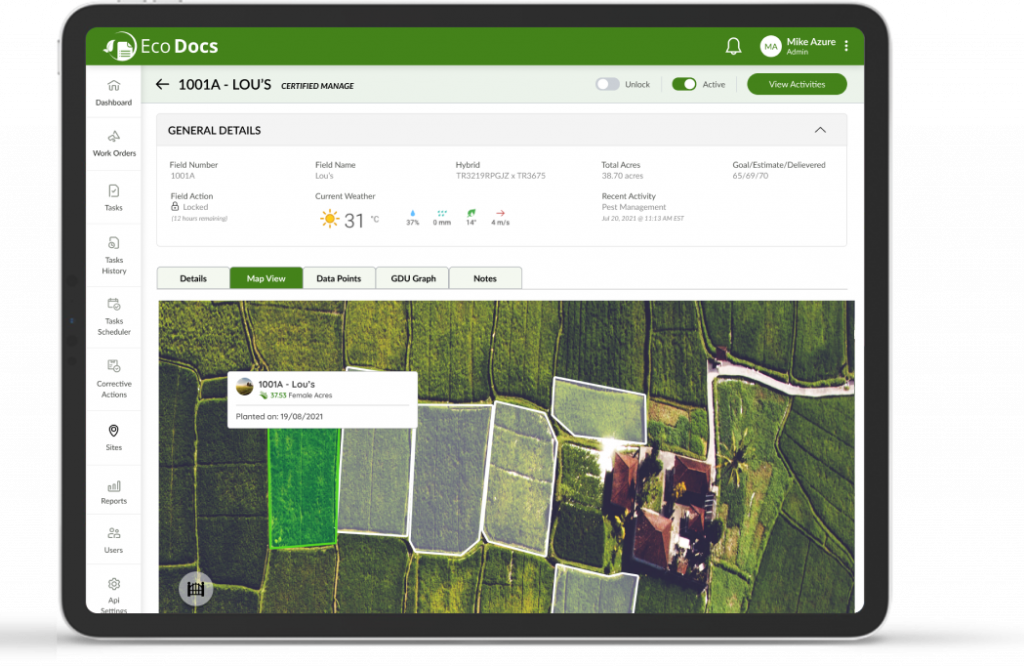
Introducing EcoDocs: Your Comprehensive Biosecurity and Compliance Solution
Introducing EcoDocs, an amazing livestock management software program developed by Folio3 AgTech. This ground-breaking technology smoothly streamlines the complicated process of monitoring biosecurity measures on livestock farms and fully responds to biosecurity and compliance requirements.
With its user-friendly interface, EcoDocs efficiently reduces the risks of disease transmission by streamlining crucial elements like access control, visitor protocols, and animal quarantine procedures.
Additionally, the software displays sophisticated Audit Management features that enable farmers to comply with industry laws easily.
EcoDocs equips farmers to make well-informed decisions, proactively identify anomalies, and quickly address possible dangers by leveraging real-time data and insights.
As a ground-breaking instrument, EcoDocs dramatically improves farm hygiene practices and procedures, safeguards livestock welfare, and lays the groundwork for a thriving agricultural industry.
Streamlining Biosecurity Protocols with EcoDocs: Efficient Tracking and Reporting
EcoDocs makes streamlining biosecurity protocols effortless. This cutting-edge solution enables efficient implementation and seamless tracking of biosecurity measures.
Through its intuitive interface, EcoDocs also acts as a food safety software that simplifies tasks like access control, visitor protocols, and quarantine procedures, ensuring optimal disease transmission prevention.
The software’s robust tracking capabilities provide real-time insights, enhancing transparency and accountability. With EcoDocs, farms can effortlessly manage compliance, swiftly address anomalies, and generate comprehensive reports.
By revolutionizing biosecurity management, EcoDocs empowers farms to uphold rigorous standards, fortify livestock health, and maintain a secure agricultural ecosystem.
Benefits of Proactive Biosecurity Measures on Livestock Farms
-
Disease Prevention: How Proactive Biosecurity Mitigates Health Risks
Adopting preventative biosecurity measures has numerous compelling benefits in cattle ranching. These safeguards serve as an impenetrable barrier against the threat of disease outbreaks, minimizing possible hazards to livestock as well as the general health of the sector.
The amazing ability of these procedures to prevent the spread of diseases is evidence of their effectiveness. This is accomplished by carefully implementing strict access controls, detailed visitor engagement regulations, and carefully coordinating quarantine procedures.
The protective shield cast by these measures is further fortified through the strategic application of timely immunizations, vigilant health monitoring, and unwavering commitment to rigorous sanitation practices.
By effectively preempting the onslaught of costly disease outbreaks, the umbrella of proactive biosecurity envelops and safeguards the health and well-being of animals while also underpinning the robust financial underpinnings of farms.
By embracing these strategic approaches, farmers are endowed with a powerful arsenal to shield the sanctity of their operations and augment the overall resilience of their farming environments.
Such a concerted commitment to proactive biosecurity measures ensures these enterprises’ continued success and cultivates an atmosphere where livestock can thrive with enhanced protection and care.
-
Economic Impact: Saving Costs Through Preventive Measures
The profound impact of biosecurity measures on the financial viability of farms cannot be overstated.
These strategic measures are formidable defenses against the looming specter of economic losses from diminished output, escalating medical expenses, and the potential for livestock casualties precipitated by disease outbreaks. The crucial distinction lies in their capacity to avert the necessity for costly reactive responses.
Biosecurity practices that emphasize early detection, meticulous quarantine protocols, and stringent hygiene measures circumvent the need for these resource-draining reactive interventions. Farms that embrace these proactive techniques reap a wealth of rewards.
Heightened growth rates, optimized feed efficiency, and diminished veterinary expenditures become part of their operational landscape. Moreover, the ripple effect extends to product quality and market access, as disease-free operations ensure unwavering standards and consumer trust.
Ultimately, adopting biosecurity techniques assumes the role of a prudent investment. Beyond preserving the physical well-being of livestock, it serves as a guardian of the very livelihoods of farms.
These profound economic and operational benefits solidify their status as essential components of responsible and sustainable farming practices, safeguarding the animals and the foundations of thriving agricultural enterprises.
Conclusion:
To maintain the health and vigor of livestock, this article emphasizes the critical role that proactive biosecurity measures play. It explores many biosecurity tactics, such as restricted facility access, strict visitor policies, and animal quarantine procedures.
These precautions are carefully planned to stop disease penetration and spread, stopping potentially catastrophic outbreaks. The essay highlights productivity losses, veterinary costs, and animal fatalities to highlight the ripple effects of illness incidents on the economy.
Proactive biosecurity measures, on the other hand, become the first line of defense, reducing these financial losses. The article’s main emphasis is the creation of creative solutions, such as EcoDocs’ Livestock Facility Management Software.
The overarching message is that proactive biosecurity is more than necessary—it’s a foundation for responsible and sustainable farming. By mitigating the risk of disease transmission, these measures fortify livestock health, protect investment, and secure the livelihoods of those within the agricultural sector.
Frequently Asked Questions (FAQs):
What are biosecurity measures, and why are they important for livestock farms?
Biosecurity measures encompass a range of practices to prevent disease introduction and spread within livestock farms.
These measures, including controlled access, visitor protocols, and quarantine procedures, are vital to safeguard livestock health and prevent disease outbreaks.
Biosecurity measures play a pivotal role in maintaining animal well-being, sustaining farm productivity, and ensuring the overall integrity of the livestock industry by minimizing the risk of disease transmission through proper hygiene, controlled movement, and early detection.
How do biosecurity measures prevent disease outbreaks in livestock?
Implementing stringent procedures like controlled access, visitor monitoring, animal quarantine, and biosecurity measures stops disease outbreaks in cattle.
By taking these steps, disease introduction and spread are reduced. Immunizations, regular physicals, and good hygiene habits all strengthen defenses. Biosecurity measures successfully protect cattle health and stop possible outbreaks on farms by anticipating hazards and improving disease detection.
What are some key practices to maintain effective biosecurity on farms?
Maintaining effective farm biosecurity involves key practices, such as controlled access with visitor protocols, thorough cleaning and disinfection routines, proper waste disposal, and animal quarantine procedures.
Regular health monitoring, timely vaccinations, and limiting animal movement also play pivotal roles.
These practices collectively reduce disease transmission risks, safeguard livestock health, and ensure the sustainability of farm operations.
How can EcoDocs assist in implementing and managing biosecurity protocols?
Through streamlined solutions, EcoDocs facilitates managing and implementing biosecurity measures. Procedures for animal quarantine, visitor management, and access control are simpler.
The software’s real-time insights help with anomaly detection and compliance tracking. EcoDocs equips farms to avoid disease transmission, ensure livestock health, and maintain a secure and effective farming environment by increasing biosecurity management.
What are the potential economic benefits of proactive biosecurity measures?
Proactive biosecurity measures have significant financial advantages for animal farms. These actions mitigate losses resulting from decreased output, increased veterinary expenses, and potential livestock losses by stopping disease outbreaks.
Rapid action and strict protocols reduce the need for expensive reactive actions. Farms that use proactive measures improve their growth rates, feed efficiency, and veterinary costs.
Additionally, operations free of diseases guarantee stable product quality and market accessibility, boosting revenue streams.
Therefore, implementing biosecurity measures is a wise investment that protects the well-being of animals and strengthens the financial security and sustainability of livestock farms, thereby enhancing the general health of the agricultural sector.

